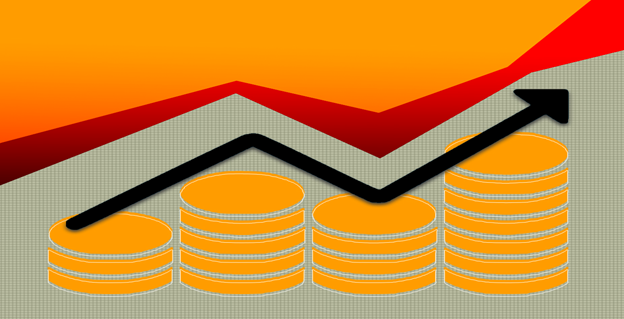Source: solarseven, Shutterstock
Summary
- There are some stocks that can be considered for long-term investing due to their resilient nature of business.
- In the three decades (1990-20), London’s broader equity benchmark index, FTSE 100 delivered triple-digit return of nearly 200 per cent.
Stocks can be a source of immense wealth as they can provide unpredictable gains if the selection is right. Though creating wealth is a matter of time and hence forever is difficult to gauge. However, there are some stocks that can be considered for long-term investing due to their resilient nature of business. In the last three decades (1990-20), London’s broader equity benchmark index, FTSE 100, delivered triple-digit return of nearly 200 per cent.
We will discuss few stocks which investors can include in their portfolio if they are looking for the long-term and continuous gains. Before buying and holding stocks, investors need to do a thorough analysis or seek professional advice before taking a call.
Also read: 5 LSE-AIM Technology Stocks to Look For in 2021

Copyright © 2021 Kalkine Media Pty Ltd.
- AstraZeneca Plc (LON: AZN)
AstraZeneca Plc is an FTSE 100 listed biopharmaceutical Company. The company spearheaded the discovery of Covid-19 vaccine in association with Oxford University. The leading pharmaceutical giant delivered double-digit revenue growth with improved profitability and cash generation. During the fiscal year 2020, the total revenue and the product sales of the company increased by 10 per cent (constant exchange rate) YoY and 1 per cent (constant exchange rate) YoY, respectively.
The company has declared a second interim dividend of US$ 1.90 per share during the fourth quarter of 2020. Notably, the company has an annual dividend yield of 2.88 per cent. During the year 2020, the net cash inflow from operating activities increased by US$ 1,830 million.
- Mondi Plc (LON: MNDI)
A global leader in packaging solutions, Mondi Plc has a strong presence in central Europe, Russia, North America, and South Africa. Despite the pandemic woes, the company managed an underlying EBITDA of €1,353 million along with excellent cash generation. Mondi reported a decent cash flow from operations of €1,485 million and managed to reduce net debt for the year 2020.
Mondi ended the year with strong demand in the packaging businesses, along with key growth drivers of e-commerce and sustainability. Despite the dip in financial performance, the company had a strong order book for 2020.
The company holds a strong balance sheet, a unique portfolio of sustainable solutions. The company recommended a total dividend of 60-euro cent per share in the financial year 2020 (FY2019: 57-euro cent per share), reflecting an increase of 5 per cent. Notably, the company has an annual dividend yield of 2.86 per cent.
During the unprecedented crisis, the packaging industry played a vital role in keeping the supply chains intact. In the post pandemic world, they have now become an essential part of our supply chain systems. As the world prepares for future pandemics, the packaging company is well poised for its next leg of growth.
- Reckitt Benckiser Group Plc (LON: RB.)
Footsie-listed Reckitt Benckiser Group Plc is an FMCG company that primarily deals in health & hygiene products. The company’s LFL (like-for-like) net revenue increased by 11.8 per cent YoY, with strong growth across all major markets, particularly in its hygiene and cleaning brands such as Lysol and Finish.
Moreover, the e-Commerce division has recorded full-year channel growth of 56 per cent in 2020. The company’s full-year adjusted operating margin was in line with mid-year guidance, while the reported operating profit was £2,160 million for 2020. The free cash flow generation increased to £3,052 million in 2020 in contrast to the previous year.
The company board has proposed a final dividend per share of 101.6 pence, reflecting a full-year dividend per share of 174.6 pence in 2020. Notably, the company has an annual dividend yield of 2.85 per cent.
In 2021, Reckitt Benckiser expects continued growth across brands, geographies, and channels. During the unprecedented crisis, the emphasis on personal hygiene has increased manifolds. Even in the post vaccine world, people are expected to maintain similar hygiene levels as they have become a part of life.
- National Grid Plc (LON: NG.)
UK-based electricity and gas utility company National Grid Plc continued to deliver strong and predictable cash flows. During the first half of 2021, the company’s statutory operating profit, profit before tax, and earnings per share increased by 13 per cent, 78 per cent and 51 per cent year-on-year, respectively. The company continued to make a significant investment in energy infrastructure of £2.6 billion during the first half of 2021. Also, the board of the company declared an interim dividend per share of 17 pence during the first half of 2021, in line with the dividend policy. Notably, the company has an annual dividend yield of 5.87 per cent.
- Barclays Plc (LON: BARC)
Barclays Plc is FTSE 100 Index listed British global bank. Despite operating in a debt-ridden environment, the bank’s income increased by 1 per cent to £21.8 billion during the fiscal year 2020, due to the resilient performance of its Corporate and Investment Bank (CIB) division. The CET1 (Common equity tier 1) ratio was up by 130 basis points to 15.1 per cent, depicting bank’s profitability. Despite the catastrophe caused by the virus, the bank remained profitable during the fourth quarter of 2020. Driven by resilient operating performance, Barclays announced a capital distribution of 5 pence per share in aggregate.
.jpg)




